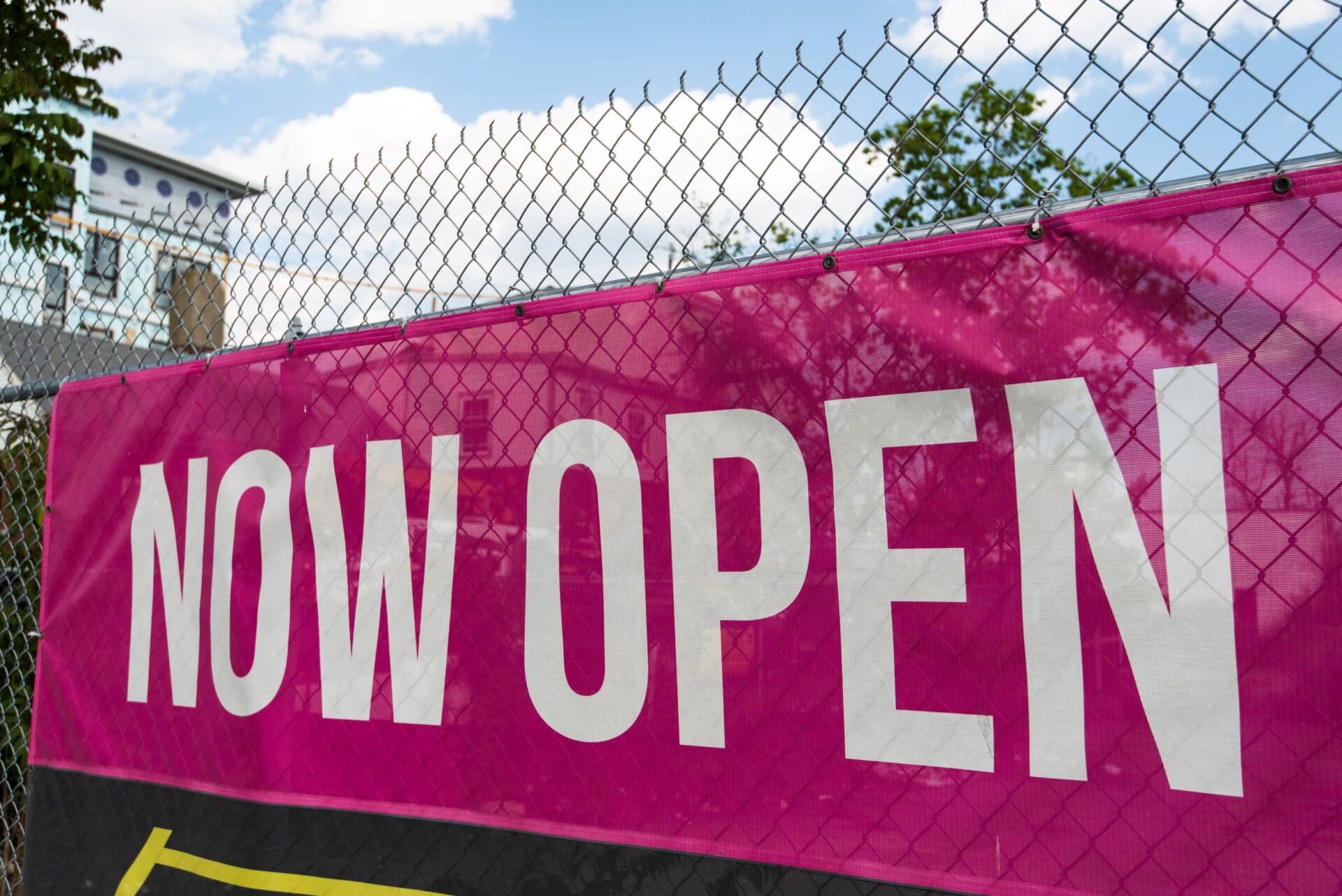General Business Sign Requirements: State & Local Needs

If you run a business or are considering it, you need to know you can’t just set up your lemonade stand and post signs around town. You can face penalty fees and other consequences for failing to follow sign regulations.
You need a sign permit. It sounds easy enough, but every state and city has different business safety requirements for its outdoor signs, and these will often vary depending on your industry and business location. You will likely need indoor signage, as well, and these signs must be ADA compliant.
The good news? The requirements for outdoor signage permits generally consider the same things: the sign’s dimensions, location, and construction materials. For indoor signage, there are helpful resources to craft ADA compliant signs.
Still, there are things to be aware of regarding state and local requirements, and steps you need to take before you place an order for or post a sign.
State Requirements
Each state in the U.S. has different requirements, which is evident as soon as you begin researching. For example:
- The state of Arizona requires a Planning and Development Department permit for all business-related signs. This also must be accompanied by a number of other approval documents.
- Massachusetts issues annual permits for both new and maintained signs under the Department of Transportation’s sign and advertising regulations (2013).
- Rhode Island, on the other hand, has introduced a web-based portal to establish a uniform system for signage license and permit applications, by city.
To learn more about your state’s requirements for business signage, visit the state government website and search for business resources that relate to permits.
Local Requirements
Local city or county governments also require a sign permit. This is mostly to ensure fair competition among businesses, but it also prevents signs and ads that are obnoxious and disruptive to local residents’ everyday living. Depending on the city, some signs must be a certain size and installed a certain way.
There are a few other things you should consider before you can post a sign locally:
- Some jurisdictions require that only licensed signage contractors submit applications for sign permits.
- If you are a tenant in a rented commercial space, you may need permission from your landlord before obtaining a permit.
- Temporary signs such as banners are also subject to signage permitting.
Check with your county or city’s zoning administration for specific details and requirements.
What To Do Before Posting A Sign
With that being said, you will want to do the following before you ever order a sign!
- Research your state and local governments’ requirements for business signage.
- Have a sign already designed by a company that specializes in business signs. Having a design ready can actually help you when applying for your permit; this is because most municipalities require details about the design specifications before they will grant approval.
- Apply for a zoning review of your signage plan. When the local zoning department approves the concept, fill out a permit application.
- Once you’ve got design specifications and your permit, obtain other signatures and supporting documents according to your state or city’s additional requirements.
- Pay any necessary fees.
- Once you have completed these steps, then you can order your sign – finally! Double-check to be sure your sign is fabricated to the appropriate specifications of the permit.
For beautifully crafted, branded, and ADA compliant interior signage for your business, contact us at Identity Group – the largest interior sign manufacturer in the United States! We specialize in hospitality signs, architectural signs, and visual décor.
